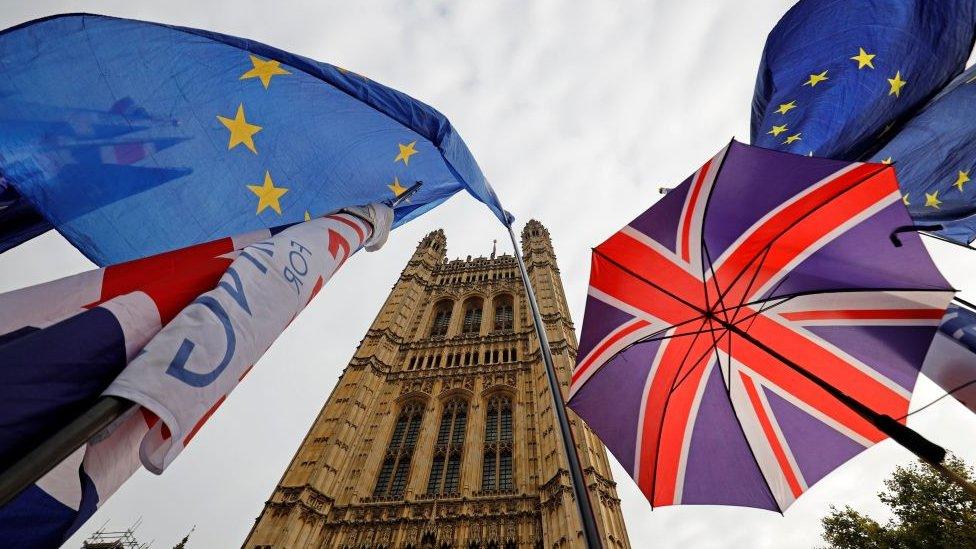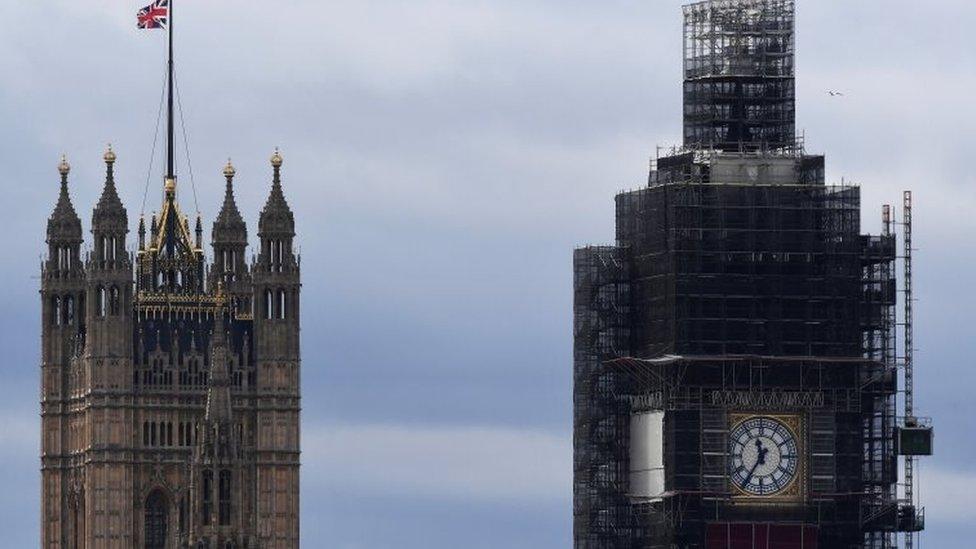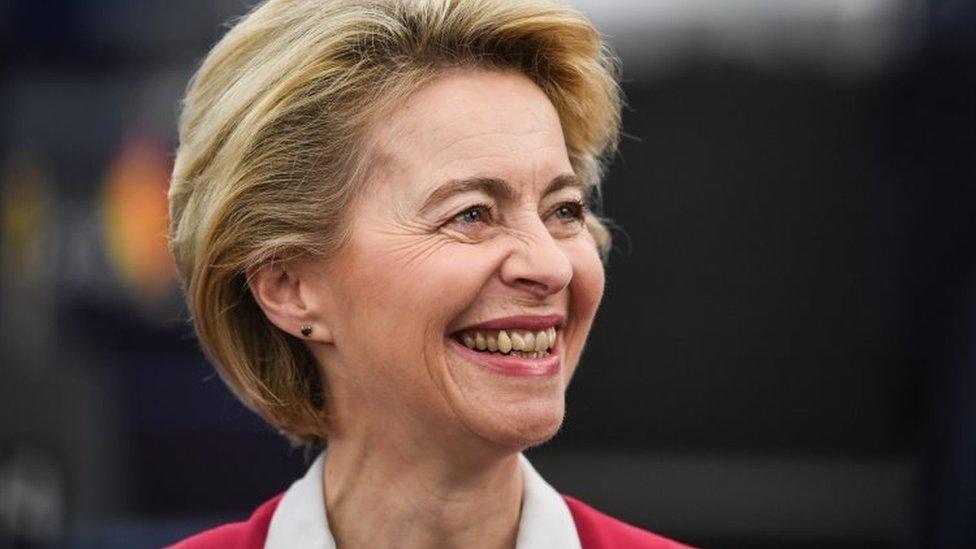Brexit: What's happening this week?
- Published

The UK is due to leave the EU at the end of this month - but before then the legislation required must be approved by Parliament.
Here are the key things you need to know about Brexit this week.
What is the latest on Brexit?
The UK is due to leave the EU at 23:00 GMT on Friday, 31 January, under the terms of an exit deal negotiated by Prime Minister Boris Johnson.
But the UK Parliament must first approve legislation required to implement the deal - the Withdrawal Agreement Bill, or Brexit bill as it's more commonly known.
The European Parliament also has to give the green light before the agreement can be fully ratified on the EU side.
However, this would only mark the next step in the Brexit process. Following its departure, the UK will enter a transition period until 31 December 2020.
During this period the UK will effectively remain in the EU's customs union and single market - but will be outside the political institutions and there will be no British members of the European Parliament.
Mr Johnson has already ruled out any extension to this period.
What is happening with the Brexit bill this week?
MPs have returned from their Christmas break, and are scrutinising the Brexit bill, which passed its first hurdle in Parliament in the Commons in December shortly after the Conservatives' election victory.
The government wants to get the bill through its remaining Commons stages by the end of Thursday, which should be eminently doable with its freshly-won majority.
The bill covers how the rights of EU citizens in the UK after Brexit will be protected, the 11-month post-Brexit transition period, and customs arrangements for Northern Ireland, among others issues.
There are also amendments - proposed changes to the bill - the Commons will have to consider during this process, although those without government backing have little hope of succeeding.
Among those that have already been defeated is a Labour amendment that aimed to give the right of permanent residence to all EU citizens who are resident in the UK before exit day.
An amendment from Brexiteer MPs Mark Francois and Nigel Evans, requiring Big Ben to chime at the moment the UK officially leaves the EU, was not selected for debate.

Mark Francois wants Big Ben to chime on 23:00 GMT on 31 January to mark Brexit
The bill is expected to clear the Commons on Thursday, before heading to the House of Lords for consideration the following week.
Theresa May suffered a string of defeats at the hands of the Lords over Brexit, but even if peers decide to amend the bill and it has to come back to the Commons, Mr Johnson should be able to reverse any of the changes they make.
Read more from the BBC's Mark d'Arcy here on what's happening this week.
Is anything else going on in the world of Brexit?

Boris Johnson is due to meet European Commission President Ursula von der Leyen
Prime Minister Boris Johnson met new European Commission President Ursula von der Leyen for the first time in London on Wednesday.
Speaking ahead of talks with the PM, Mrs von der Leyen warned it would be "impossible" to reach a comprehensive trade deal by the end of 2020.
She said if the deadline was not extended it was not a case of "all or nothing", but of priorities.
Downing Street called the talks between the two "positive" and said Mr Johnson was clear the UK "would not extend the implementation period beyond 31 December 2020".
"The PM reiterated that we wanted a broad free trade agreement covering goods and services, and co-operation in other areas," the spokesman said.
MPs have questioned Brexit Secretary Stephen Barclay in the Commons on Thursday - the final time Exiting the European Union questions will be held as the the department is due to be closed down on 31 January.

